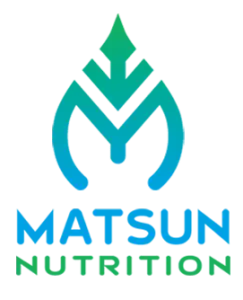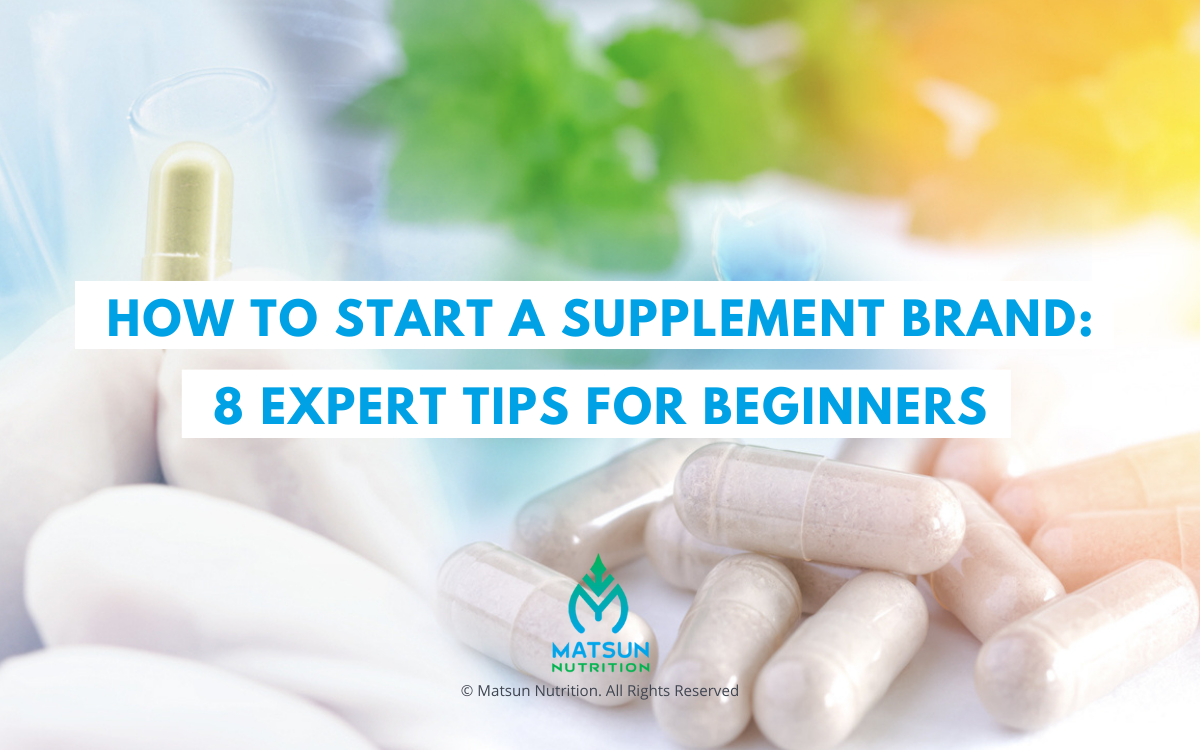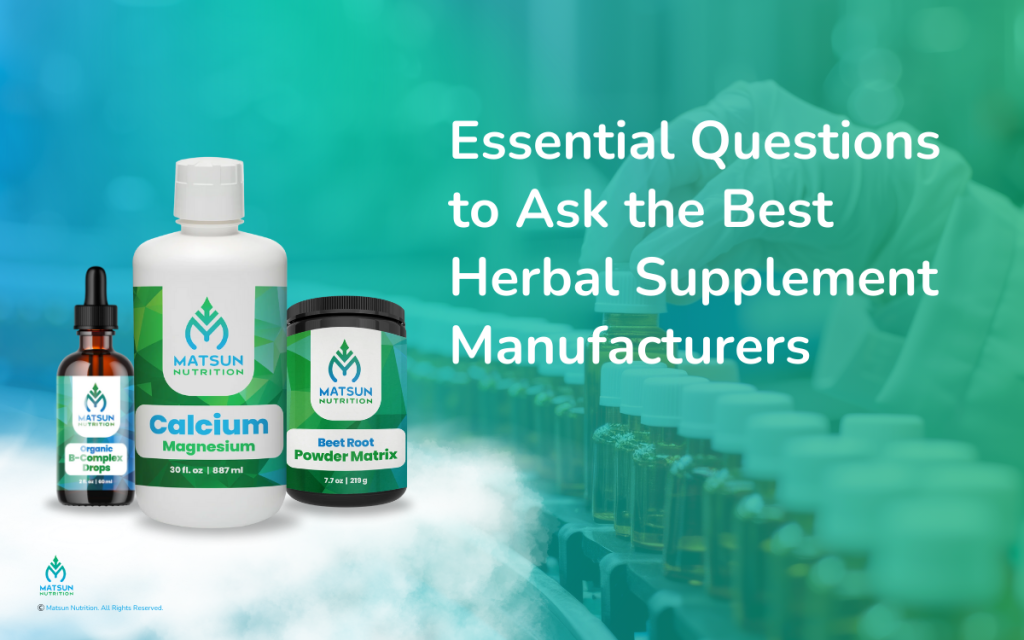The dietary supplement market is booming, projected to surpass $280 billion globally by 2026. If you’re eager to tap into this thriving industry but unsure where to begin, you’re in the right place. Starting a supplement brand might seem overwhelming, especially if you lack experience, but it’s absolutely achievable with the right guidance.
Whether you’re a health enthusiast, a nutrition expert, or simply an entrepreneur with a vision, this guide will equip you with the essential steps to turn your idea into a successful supplement brand. Let’s dive into actionable strategies that simplify the process and set you on the path to success.
1. Understand the Market and Regulations

Before plunging headfirst into the supplements industry, it’s essential to understand the industry. The supplements industry is incredibly diverse, spanning everything from weight management supplements and performance enhancers to sleep aids.
Understanding the different types of supplements will help you identify a niche that aligns with your business goals, passion, and target audience.
That said, here are some key things you need to understand about the supplements market:
- Target audience and demographics: There’s no one-size-fits-all solution when it comes to supplements. So, it’s crucial to know your audience. Are you targeting fitness enthusiasts, senior citizens, or people with particular health concerns like post-gastric bypass surgery patients? Understanding your audience can let you tailor your product and messaging to meet customer preferences.
- Regulations: The supplements industry is heavily regulated in the United States. Familiarize yourself with the Food and Drug Administration (FDA) regulations governing supplements, as ignoring them could land you in legal trouble!
2. Define Your Brand and Product

The supplements industry is incredibly competitive. As of 2023, there were over 29,000 different supplements available to U.S. consumers, a number that continues to rise yearly. If you want to set your brand apart from the vast sea of supplements, you’ll need to define your product.
Generally, less is more. Instead of spreading yourself thin, consider focusing on a particular niche or problem. For example, if you’re targeting athletes, consider the bustling sports nutrition segment. Alternatively, if you’re passionate about weight management, consider offering supplements that address specific issues like appetite control or metabolism. By narrowing your focus, you’ll attract a loyal customer base interested in your offerings.
3. Find the Right Manufacturer

As a beginner, collaborating with a reliable supplement manufacturer is crucial to the success of your brand. Partnering with a reliable manufacturer can turn your vision into a reality, ensuring you provide your customers with effective, safe, and high-quality supplements.
That said, here are some key factors to consider when choosing a reliable supplement manufacturer:
- Certifications and compliance: Seek manufacturers with a proven track record of adhering to GMP (Good Manufacturing Practices) and other relevant regulations. Don’t hesitate to ask for certifications to ascertain whether the manufacturer complies with industry standards.
- Industry reputation: Don’t settle for the first supplement manufacturer you find. Ask for references, read reviews, and compare offerings to get insights into the manufacturer’s reputation.
- Private label vs. contract manufacturers: Consider partnering with a private label supplement manufacturer if you don’t want to handle the technical aspects of manufacturing. Private label manufacturers have pre-made formulas you can customize with your branding. Alternatively, if you want greater control over key aspects of manufacturing, like formulation, labeling, and packaging, consider partnering with a contract manufacturer.
4. Develop Your Product

Many beginners partner with private label supplement manufacturers, as they handle all the technical aspects of manufacturing. However, if you partner with a contract manufacturer, you’ll need to develop your product.
Bearing that in mind, here are some key things to consider when developing your product:
- Supplement form: Supplements come in various forms, including tablets, powders, and liquids. Consider the form you want to offer, particularly with your target consumers in mind. For instance, if you’re targeting children, liquid formulations are better than tablets because they’re easier to swallow.
- Taste: Nobody wants to swallow bitter supplements. Experiment with various flavors and sweeteners to provide a pleasant experience for your customers. As a rule of thumb, consider conducting small-scale consumer testing, as taste preferences may vary.
- Dosages: Consult with experts to determine the appropriate amount of each ingredient for efficacy and safety.
5. Build Your Brand and Marketing Strategy

Once your product is ready, you’ll need to reach your target audience and get them excited about it. That’s where brand building and marketing come in. Here are some tips to build your brand and promote your product:
- Choose a memorable brand name: Your brand name can significantly influence customer perception and purchase decisions. Choose a brand name that’s easy to say, reflects your values, and distills the essence of your supplements.
- Design a compelling logo and packaging: Aesthetics matter when it comes to supplements. Your packaging is the first thing consumers will notice about your product, so make sure it’s enticing. Consider working with graphic designers to create a visually appealing product.
- Leverage social media channels: Use social media to connect with your audience. Identify platforms where your target demographic is active and engage with them authentically. For instance, if your target audience is health-conscious Gen Zs, you may want to connect with them on TikTok or Instagram.
- Create compelling content: Create engaging and informative content that encourages your audience to take action. Share insightful blog posts and captivating videos. Just bear in mind that your content shouldn’t just sell. It should build trust and establish your brand as an authority in the wellness space.
- Partner with influencers: Collaborate with influencers who align with your brand. Their endorsement can introduce your supplements to a wider audience and build brand authority. Authenticity is key, so choose influencers who genuinely resonate with your product.
6. Build Distribution Channels

Once you build a solid brand identity, you’ll need to ensure your supplements reach the hands of eager consumers. Here are some tips to build distribution channels:
- Choose the right platform: As a beginner, e-commerce provides a simple, cost-effective way to reach customers. Explore platforms like Amazon, Shopify, or eBay that align with your business model. If you want to learn how to sell supplements on Amazon, we’ll show you how!
- Partner with local wellness stores: Local health stores can be a boon for your business as a beginner. Approach health food stores or specialty shops aligned with your target audience. If feasible, offer attractive wholesale terms to entice them to stock your products.
- Partner with fitness centers: Partner with fitness centers and gyms. These places attract individuals interested in health and fitness, making them the perfect venues to provide your products. Consider exclusive partnerships or promotional events to boost brand visibility.
7. Legal and Financial Considerations

Before launching your supplement brand, you can’t overlook legal and financial considerations. While it’s advisable to seek professional guidance from legal and financial experts, here are some key considerations to get you started:
- Choose a suitable business structure: Select an appropriate business structure like a sole proprietorship, partnership, or corporation. Remember, each has its pros and cons, so understanding their nuances is critical. Consult a lawyer to determine the structure that’s ideal for your circumstances.
- Get required permits and licenses: Research the necessary permits and licenses to conduct business. These might involve business licenses and FDA registrations. Don’t neglect this crucial step, as doing so could result in hefty fines or legal troubles.
- Protect your brand’s identity: Consider trademarks for your logo and brand name to prevent infringement. Protecting your intellectual property (IP) ensures your unique offerings remain exclusive to your brand. Consult an attorney to learn more about safeguarding your IP.
- Create a budget for startup costs: Starting a business involves many costs, such as manufacturing, marketing, and legal fees. Craft a financial plan for these and other recurring expenses like utilities and wages. Consult a financial expert to help you create a budget if necessary.
8. Scale Your Business

As your business grows and more sales start trickling in, you’ll certainly want to take it to new heights through strategic growth and expansion. Here are some tips to grow your business:
- Gather consumer feedback: Listen to your customers. Encourage reviews, perform surveys, and conduct online polls to determine what’s working and what’s not. The information you glean from consumers can let you determine what needs improvement.
- Refine your products: Don’t hesitate to tweak your product. Use consumer feedback to refine your formula, update packaging, or alter the dosage. Doing so can allow you to stay ahead of the curve and meet customer expectations.
- Build a team: As your business expands, you may need to recruit talented individuals to support your vision. From marketing professionals to logistics experts, the right people can elevate your brand. Plus, delegating tasks can allow you to focus on your core strengths and maintain a healthy work-life balance.
Conclusion
Starting a supplement brand with no experience can feel intimidating. But don’t let your lack of experience or the industry giants stop you from realizing your vision of creating a thriving business. With patience, persistence, research, a relentless focus on providing quality products, and a dedication to meeting customer demands, you can create a flourishing supplement brand that leaves a positive mark on the health and wellness industry.
Have more questions about how to get a supplements business off the ground with no experience? Get a Free Quotation from us, or, Contact us for a free, no-obligation consultation.
RELATED READ:




